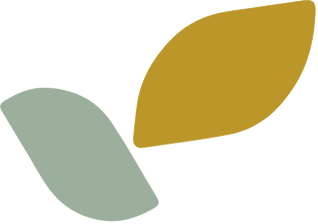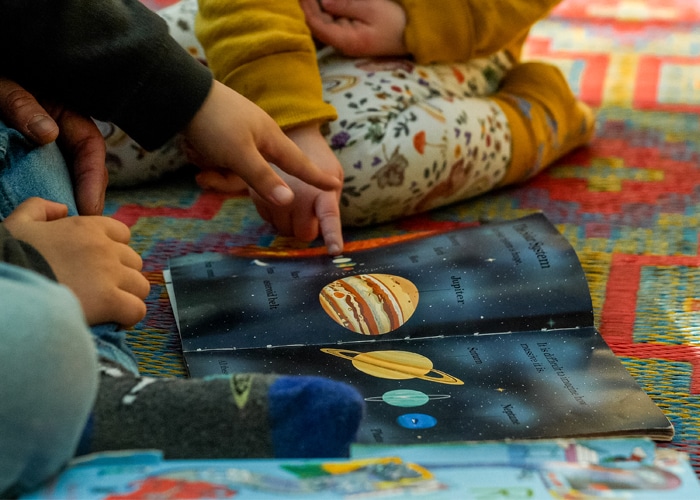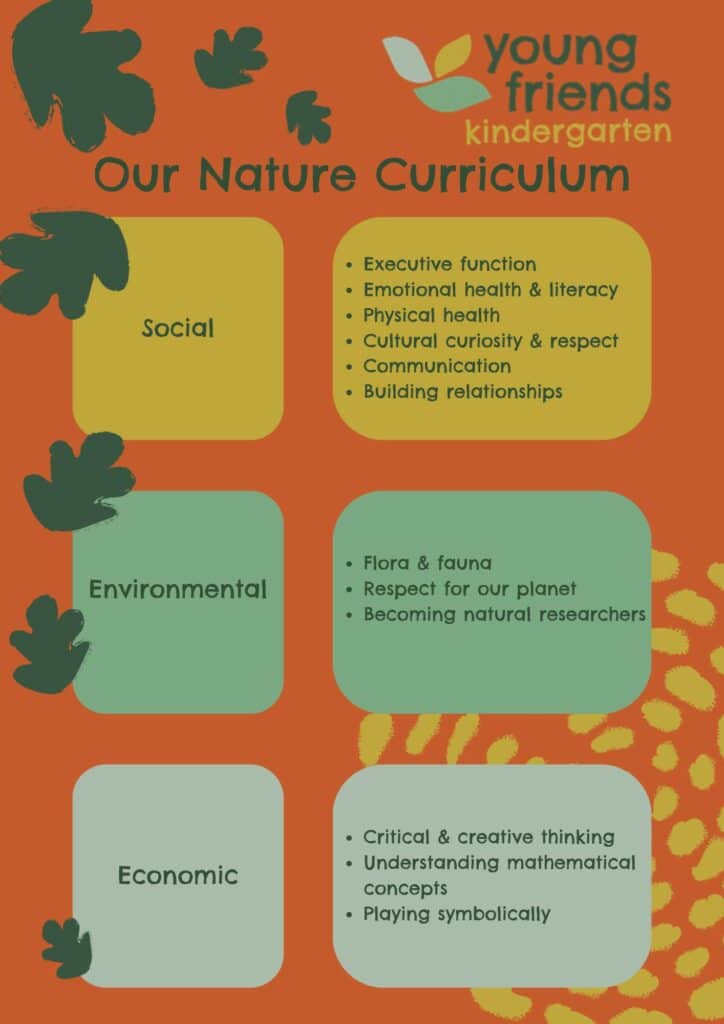

Our nursery curriculum has the Three Pillars of Sustainability at its foundation. True sustainability happens when social, economic, and environmental values are considered. Our activities, provocations, and environments consider all three concepts, which we have also linked to the 7 areas of learning within the EYFS. By following the Young Friends Nature Curriculum, we know we are authentically embedding a life-long commitment to protecting our planet and can be confident our children are on their way to reaching the level of development expected by the end of the reception year.
The concept of the Three Pillars was first explored by the World Wildlife Fund in 1980. They defined sustainable development as that which ‘‘must take account of social and ecological factors, as well as economic ones.’’


We establish a social consciousness, with the children seeing themselves as a member of a community (whether it be their nursery pod, their family, their hometown, their country, or their global community). Caring for others and at the same time developing their own voices and nurturing their own well-being.

We encourage our children to be respectful and care for their environment as a whole and more specifically flora and fauna.

We instil an economic awareness. There is an expectation to look after resources at nursery and their environment around them and think about how we can reuse and recycle. We think about the cost to our pocket, the community, and the planet.
Young Friends Nature Curriculum has sustainability at its heart. When building our curriculum, we placed our aspirations for the children at the foundation; what we want them to know and learn by the time they go to school.

Our activities, conversations, and provocations will help them to……….
Social
Environmental
Economic
We consider what we want our children to learn, what we can do to facilitate this and what the outcome will be. Ofsted call this “The Three I’s,” intent, implementation and impact or curriculum, pedagogy, and assessment.
Curriculum (intent) is the content, the ‘what’ we want children to know in order to embed our ethos and reach the EYFS standards.
Pedagogy (implementation) is the process we use to teach children: how we ‘deliver’ the curriculum. We adapt our activities, questioning, conversations, Eco-Warrior Values and even our choice of resources to help the children gain the knowledge, skills, and behaviours they need.
Assessment (impact) is how we know this is working. It also helps us to further shape the curriculum and the ‘pedagogy’ we use to effectively deliver it. We assess our children each season (four times a year) using our growth cycle. The outcome of our assessments let us know if each child is developing well or needing support, thus illustrating the efficacy of our curriculum.
We have developed a Growth Cycle to help us to reach these aspirations and to ensure our children will transition smoothly to school, within the expectations of the Early Years Foundation Stage. The cycle contains 3 steps of growth towards an intended outcome. We understand children’s learning isn’t linear so know our children will move at their own pace through the cycle, moving backwards and forwards within in all three stages.
We post our monthly interests in a newsletter on Famly so parents can see what their children are doing and join in where possible. We make suggestions for home, so learning can be continued and deepened.
From a very young age, our children start to develop an understanding of their place in the world, and how they can make a difference. It sets the pattern for a lifetime of responsible habits that will help ensure they grow up into citizens who will benefit our planet.
It’s also amazing how much progress the children make. Our approach builds their confidence and resilience. By encouraging them to explore their own interests, and learn at a pace that suits them, we help them to develop love of learning and sense of self that will last them a lifetime.
At this age, your child’s brain is making more connections than it ever will again. The extra attention they get from our well-trained staff means that they get the most from their kindergarten experience at this crucial point in their development, and will move on to school superbly equipped to flourish.
Considering all of this, we can be sure that not only will your child reach or exceed the level of development expected by the end of the EYFS, but they’ll also have a lifelong commitment to protecting our planet.
Young Friends Kindergarten
89 Holland Road
Hove
East Sussex
BN3 1JP
t: 01273 735 100
e: enquiries@youngfriends.co.uk